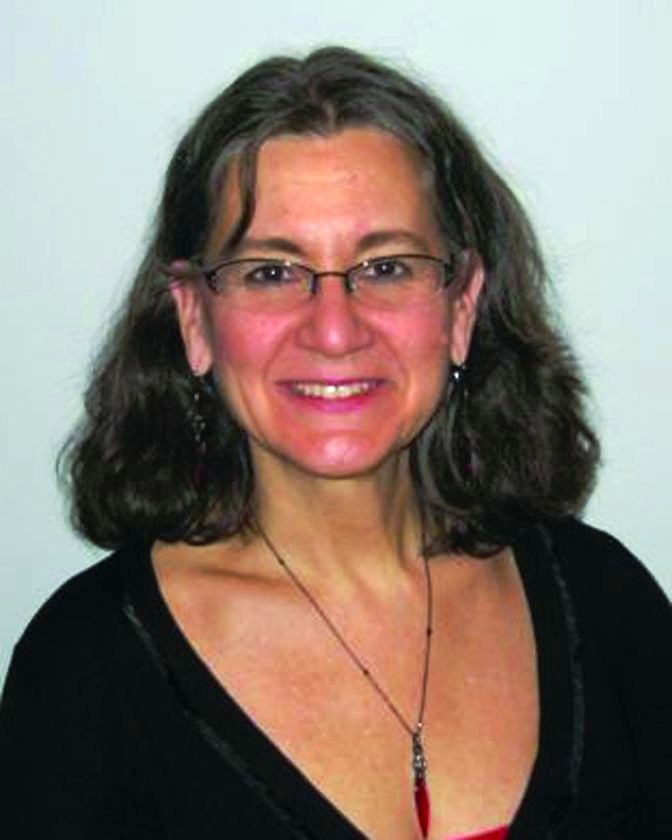User login
In mid-September, the American Congress of Obstetricians and Gynecologists’ state legislative chairs and lobbyists from 41 states met to discuss top state legislative issues. This group meets annually in the early fall in order to share legislative issues from the previous legislative session and discuss goals for the upcoming session. The attendees sit state by state around a large, rectangular table, where they can share challenges experienced and challenges expected with current legislation and emerging issues.
The discussion included recent legal decisions and new issues. One hot topic was the June 2016 Supreme Court ruling related to TRAP (Targeted Regulation of Abortion Providers) laws. Some states are still encumbered by TRAP laws, despite the recent ruling against the Texas abortion regulations. There are actions underway in some states to get these regulations reversed to be in compliance with the Supreme Court decision.
Another topic discussed was the push to create a Maternal Mortality Committee in each state. Some states have had this committee for many years and shared pearls for how to get the legislation passed. Collaboration with advocates in the medical community and with the state departments of health was considered to be critical in the passage of legislation to support the creation of these committees.
There was prolonged discussion in the general session, as well as in breakout sessions, about the different types of midwives and the goal to establish a collaborative working relationship with them. Questions discussed included the educational goals for each group, as well as their level of responsibility. The licensing of midwives varies between states, ranging from the State Board of Midwifery to the State Board of Nursing to the State Board of Medicine. Maine was recognized as a state that has successfully created a collaborative relationship with the midwives who practice there. ACOG continues to work with the American College of Nurse-Midwives to create collaborative practice relationships.
Another breakout session focused on reproductive health. This group discussed legislation that interferes with the patient-physician relationship, including mandating an outdated protocol for administering medication abortion and even threatening physicians who provide abortion services with jail time. State legislation to allow pharmacists to prescribe hormonal contraception was also reviewed.
There was consensus among the meeting participants that communication with legislators about evidence-based medicine and sound science, along with ob.gyns.’ advocacy in state legislatures, is critical to counterbalancing inappropriate political interference in the patient-physician relationship. The discussion also touched on the importance of continued collaboration with partners across the medical community, since attempts to legislate the practice of medicine can negatively impact a wide range of clinical practices.
Dr. Bohon is an ob.gyn. in private practice in Washington, D.C. She is an ACOG state legislative chair from the District of Columbia and a member of the Ob.Gyn. News Editorial Advisory Board. She reported having no relevant financial disclosures.
In mid-September, the American Congress of Obstetricians and Gynecologists’ state legislative chairs and lobbyists from 41 states met to discuss top state legislative issues. This group meets annually in the early fall in order to share legislative issues from the previous legislative session and discuss goals for the upcoming session. The attendees sit state by state around a large, rectangular table, where they can share challenges experienced and challenges expected with current legislation and emerging issues.
The discussion included recent legal decisions and new issues. One hot topic was the June 2016 Supreme Court ruling related to TRAP (Targeted Regulation of Abortion Providers) laws. Some states are still encumbered by TRAP laws, despite the recent ruling against the Texas abortion regulations. There are actions underway in some states to get these regulations reversed to be in compliance with the Supreme Court decision.
Another topic discussed was the push to create a Maternal Mortality Committee in each state. Some states have had this committee for many years and shared pearls for how to get the legislation passed. Collaboration with advocates in the medical community and with the state departments of health was considered to be critical in the passage of legislation to support the creation of these committees.
There was prolonged discussion in the general session, as well as in breakout sessions, about the different types of midwives and the goal to establish a collaborative working relationship with them. Questions discussed included the educational goals for each group, as well as their level of responsibility. The licensing of midwives varies between states, ranging from the State Board of Midwifery to the State Board of Nursing to the State Board of Medicine. Maine was recognized as a state that has successfully created a collaborative relationship with the midwives who practice there. ACOG continues to work with the American College of Nurse-Midwives to create collaborative practice relationships.
Another breakout session focused on reproductive health. This group discussed legislation that interferes with the patient-physician relationship, including mandating an outdated protocol for administering medication abortion and even threatening physicians who provide abortion services with jail time. State legislation to allow pharmacists to prescribe hormonal contraception was also reviewed.
There was consensus among the meeting participants that communication with legislators about evidence-based medicine and sound science, along with ob.gyns.’ advocacy in state legislatures, is critical to counterbalancing inappropriate political interference in the patient-physician relationship. The discussion also touched on the importance of continued collaboration with partners across the medical community, since attempts to legislate the practice of medicine can negatively impact a wide range of clinical practices.
Dr. Bohon is an ob.gyn. in private practice in Washington, D.C. She is an ACOG state legislative chair from the District of Columbia and a member of the Ob.Gyn. News Editorial Advisory Board. She reported having no relevant financial disclosures.
In mid-September, the American Congress of Obstetricians and Gynecologists’ state legislative chairs and lobbyists from 41 states met to discuss top state legislative issues. This group meets annually in the early fall in order to share legislative issues from the previous legislative session and discuss goals for the upcoming session. The attendees sit state by state around a large, rectangular table, where they can share challenges experienced and challenges expected with current legislation and emerging issues.
The discussion included recent legal decisions and new issues. One hot topic was the June 2016 Supreme Court ruling related to TRAP (Targeted Regulation of Abortion Providers) laws. Some states are still encumbered by TRAP laws, despite the recent ruling against the Texas abortion regulations. There are actions underway in some states to get these regulations reversed to be in compliance with the Supreme Court decision.
Another topic discussed was the push to create a Maternal Mortality Committee in each state. Some states have had this committee for many years and shared pearls for how to get the legislation passed. Collaboration with advocates in the medical community and with the state departments of health was considered to be critical in the passage of legislation to support the creation of these committees.
There was prolonged discussion in the general session, as well as in breakout sessions, about the different types of midwives and the goal to establish a collaborative working relationship with them. Questions discussed included the educational goals for each group, as well as their level of responsibility. The licensing of midwives varies between states, ranging from the State Board of Midwifery to the State Board of Nursing to the State Board of Medicine. Maine was recognized as a state that has successfully created a collaborative relationship with the midwives who practice there. ACOG continues to work with the American College of Nurse-Midwives to create collaborative practice relationships.
Another breakout session focused on reproductive health. This group discussed legislation that interferes with the patient-physician relationship, including mandating an outdated protocol for administering medication abortion and even threatening physicians who provide abortion services with jail time. State legislation to allow pharmacists to prescribe hormonal contraception was also reviewed.
There was consensus among the meeting participants that communication with legislators about evidence-based medicine and sound science, along with ob.gyns.’ advocacy in state legislatures, is critical to counterbalancing inappropriate political interference in the patient-physician relationship. The discussion also touched on the importance of continued collaboration with partners across the medical community, since attempts to legislate the practice of medicine can negatively impact a wide range of clinical practices.
Dr. Bohon is an ob.gyn. in private practice in Washington, D.C. She is an ACOG state legislative chair from the District of Columbia and a member of the Ob.Gyn. News Editorial Advisory Board. She reported having no relevant financial disclosures.

